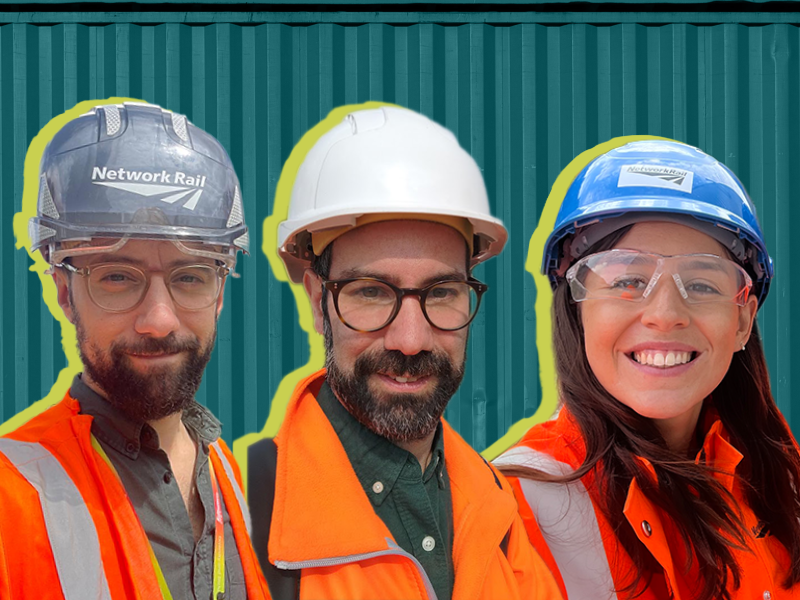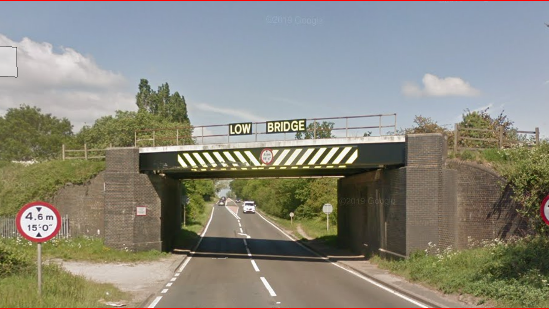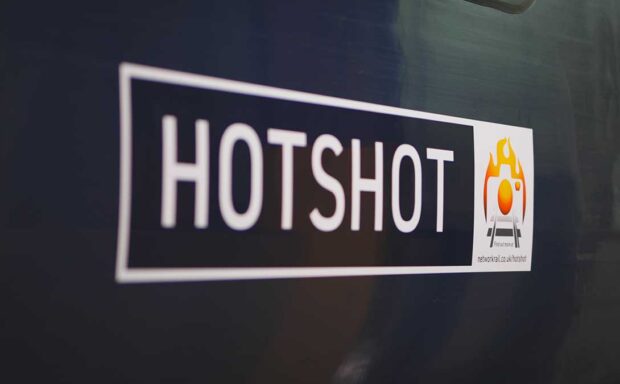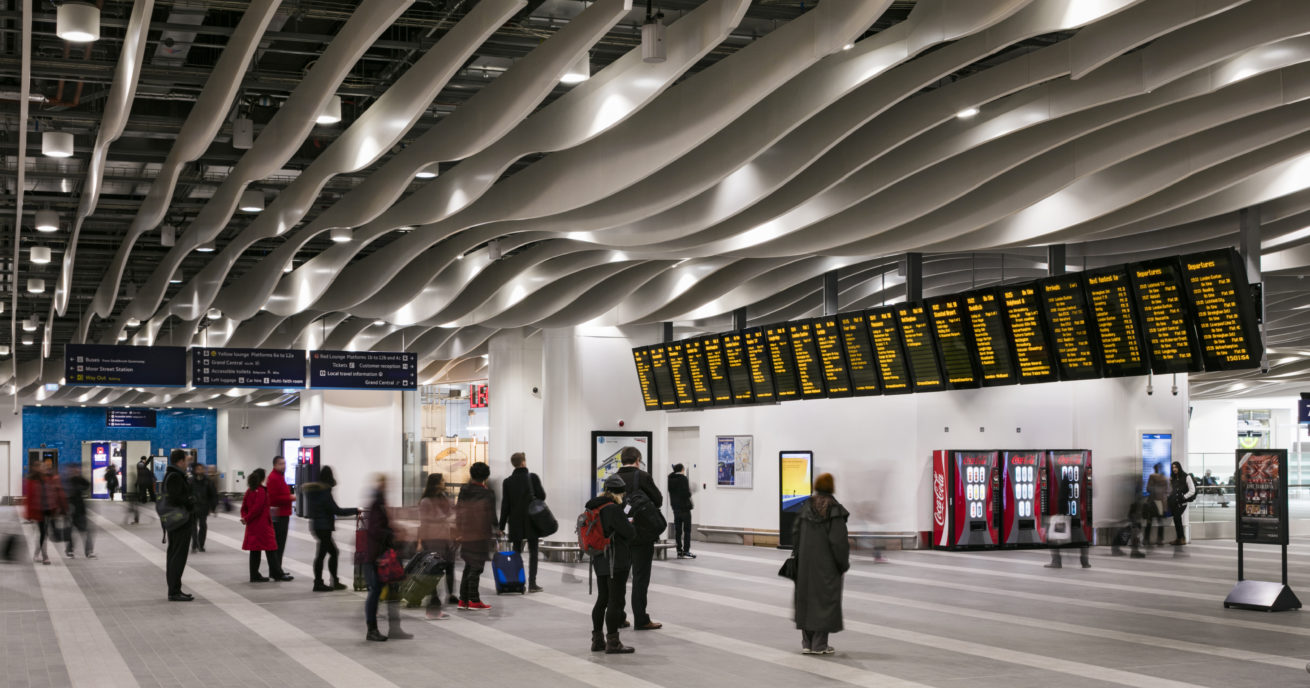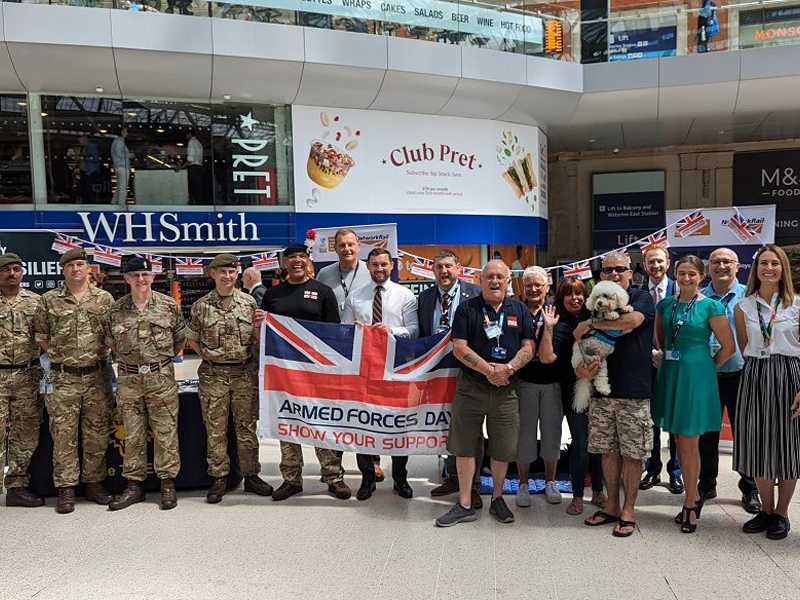Meet Simon, Megan and Daniel – three of our rail freight colleagues who help run some of the 600 freight trains on our railway.
Find out more about their jobs.
What do you and what does a typical day look like?
Simon: Essentially, I help get lorries off the roads and move more goods by train. I work with freight operators who run the trains and the people who control the trains on the network to make sure we run the freight trains fast and on time.
Megan: I help look after the people and companies that use freight trains to move goods on our railway. Each day, I talk to freight companies, answer their questions, and help solve any problems.
Daniel: I work with companies who are thinking about using rail to move their products. Together we figure out what options they have, looking at things like where their company is based; how close they are to a rail terminal and what kind of freight service they need. My team also research what types of goods and logistics – or movements – companies might need in years to come so we can prepare to move even more goods by rail.
Describe your job in three words.
Simon: Different. Fun. Interesting.
Megan: Supportive. Reliable. Connected.
Daniel: Inquisitive. Proactive. Resourceful.
How did you find yourself in your current role? And why freight?
Simon: I worked in the rail industry for a few years already at Transport for London, Crossrail and Crossrail 2. I was looking for a new job and saw Network Rail wanted a new freight manager. It sounded interesting. It was during the covid pandemic when passenger trains weren’t very busy but the freight team were really busy so it was very interesting and exciting.
Megan: After I finished university, I joined a special job programme for graduates. I didn’t know much about freight at first, but I was interested in learning something new.
I started this job right when the pandemic began when freight trains were particularly important – helping carry food, medicine, and other important things across the country. I thought that was really cool, and I wanted to be part of it.
Daniel: I’ve been working in the railway industry for about 20 years. After finishing university, I started working for Network Rail, planning freight trains into the timetable amongst passenger trains. I then moved onto planning when the engineering work would happen, making sure that passenger and freight trains could still get to where they needed to be. A few years ago, I moved into the freight team, looking after the operators who run special steam trains on the railway network. I then moved into a role in freight business development to support moving more goods by rail.
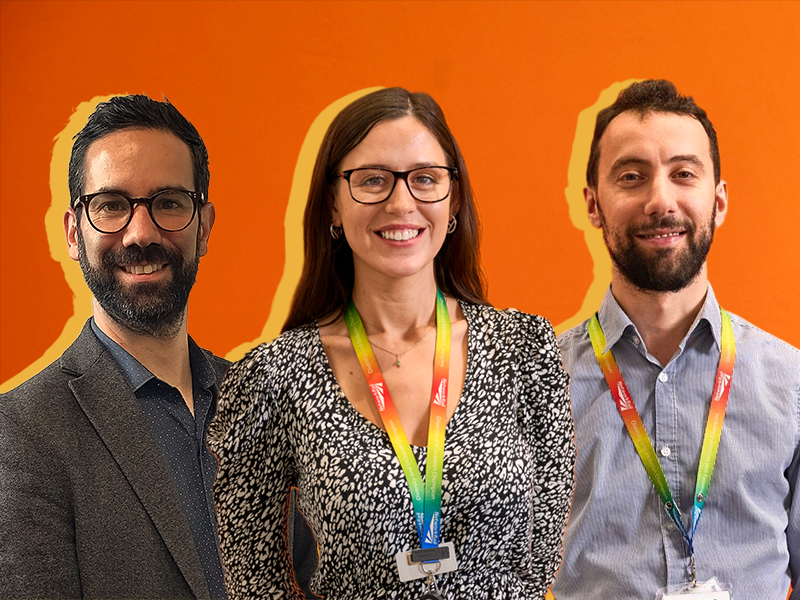
What’s the best thing about working in freight?
Simon: I really care about the environment and trains are the most environmentally friendly way to move goods and people. I want to get more people using trains as well to help the environment and reduce our emissions.
Megan: The best part is knowing I’m helping keep the country moving. It feels good to be part of something important, and I get to work with lots of different people and learn new things every day.
Daniel: I’m a passionate believer that we should move as many goods by rail as we can. It’s better for the environment in so many ways – it means less trucks on the roads and less pollution in the air.
The best thing about working in the industry is being part of the global move towards net zero.
What advice would you give people interested in a career in freight?
Simon: There are lots of resources online where you can read about freight, ports and the railways. Follow freight companies on social media to find out what they’re up to so you can keep up, see if they have any open days and do research to find out what might interest you.
Megan: If you’re curious, like solving problems, and enjoy working with others, freight could be a great job for you. Ask questions – it’s the best way to learn. Be open to trying new things – you never know what you might enjoy
I’m also proud to be a woman working in freight, which is mostly a male-dominated industry. We need more girls to join and bring their ideas, skills, and energy.
Daniel: Communication skills are so important in this industry. Being able to speak to new people from different backgrounds and organisations is really helpful. Being prepared to learn about the industry outside of railways also puts you in a good place to succeed.
Any exciting developments we should watch out for?
Simon: There are some new freight terminals coming soon bringing trains to places that haven’t seen them before (or for a very long time).
Megan: The GBRf Class 99 and the ROG Class 93 are two new and clever locomotives that will soon be introduced to our railways. The Class 99, used by freight operator GB Railfreight, can run on electricity from overhead wires or switch to diesel when needed. The Class 93, used by freight operator Rail Operations Group, can run on electricity, diesel, or batteries, giving it lots of flexibility. Both trains are designed to be powerful, helpful for the environment, and able to pull different kinds of loads across the country.
Daniel: Increasing the amount of freight moving by rail involves getting creative about how we create more terminals. We’re working with our property tenants to look at how we can maximise the use of the space, so, for example, getting two tenants onto the same area. We’re also looking at creative ways of using our network to do things like loading from the live rail line where it’s safe to do it. This means we can avoid expensive connection and terminal costs. We’re also working to develop brand new rail facilities.
Where do you see yourself in five years’ time?
Simon: I’m hoping I can still be in the freight team, taking on more responsibility for helping get more freight trains on the railway.
Megan: I still want to be working in freight because I love it. I also want to help more young people, especially girls, to join and enjoy working in freight too.
Daniel: I hope to have seen some more of the terminal developments that I am working on becoming a reality, and I want to see more customers choosing rail for their freight movements.
